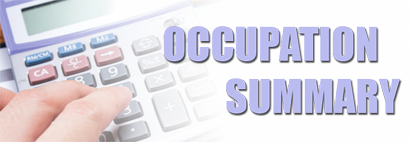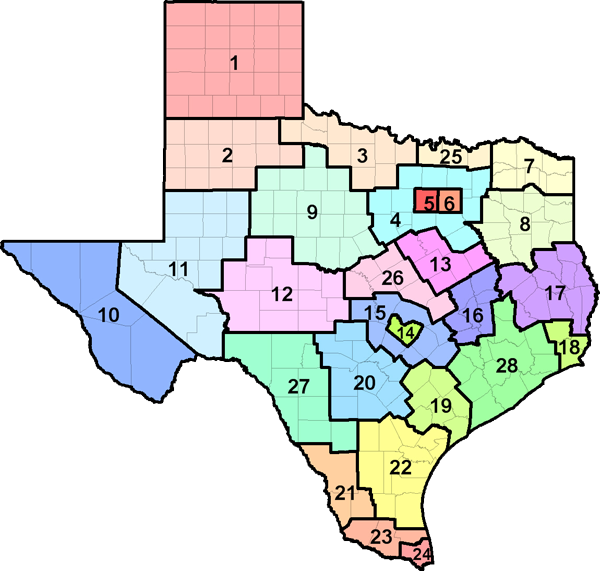The U.S. Department of Labor has developed an automated occupational information database, O*NET, that identifies and describes work content, work skills, and training requirements for all jobs across the country in all sectors of the economy. Much of the occupational information contained in this report is derived directly from the O*NET database, and supplemented with information from the Bureau of Labor Statistics, Census Bureau, and Labor Market and Career Information.

| 2023 Statewide average hourly wage | $26.90 |
| 2023 National average hourly wage | $31.19 |

| Region | Employment | Projected Employment 2032 | Projected Annual Openings 2032 |
Annual Growth Rate |
Average Income |
|---|---|---|---|---|---|
| Texas (all regions) |
|
|
|
|
|
| Top 10 Relevant Knowledge Areas | Relevant Importance Levels |
|---|---|
| Law and Government Knowledge of laws, legal codes, court procedures, precedents, government regulations, executive orders, agency rules, and the democratic political process. |
|
| English Language Knowledge of the structure and content of the English language including the meaning and spelling of words, rules of composition, and grammar. |
|
| Administrative Knowledge of administrative and office procedures and systems such as word processing, managing files and records, stenography and transcription, designing forms, and workplace terminology. |
|
| Computers and Electronics Knowledge of circuit boards, processors, chips, electronic equipment, and computer hardware and software, including applications and programming. |
|
| Public Safety and Security Knowledge of relevant equipment, policies, procedures, and strategies to promote effective local, state, or national security operations for the protection of people, data, property, and institutions. |
|
| Administration and Management Knowledge of business and management principles involved in strategic planning, resource allocation, human resources modeling, leadership technique, production methods, and coordination of people and resources. |
|
| Communications and Media Knowledge of media production, communication, and dissemination techniques and methods. This includes alternative ways to inform and entertain via written, oral, and visual media. |
|
| Customer and Personal Service Knowledge of principles and processes for providing customer and personal services. This includes customer needs assessment, meeting quality standards for services, and evaluation of customer satisfaction. |
|
| History and Archeology Knowledge of historical events and their causes, indicators, and effects on civilizations and cultures. |
|
| Economics and Accounting Knowledge of economic and accounting principles and practices, the financial markets, banking, and the analysis and reporting of financial data. |
| Top 10 Relevant Skill Areas | Relevant Importance Levels |
|---|---|
| Reading Comprehension Understanding written sentences and paragraphs in work-related documents. |
|
| Active Listening Giving full attention to what other people are saying, taking time to understand the points being made, asking questions as appropriate, and not interrupting at inappropriate times. |
|
| Critical Thinking Using logic and reasoning to identify the strengths and weaknesses of alternative solutions, conclusions, or approaches to problems. |
|
| Writing Communicating effectively in writing as appropriate for the needs of the audience. |
|
| Speaking Talking to others to convey information effectively. |
|
| Active Learning Understanding the implications of new information for both current and future problem-solving and decision-making. |
|
| Complex Problem Solving Identifying complex problems and reviewing related information to develop and evaluate options and implement solutions. |
|
| Judgment and Decision Making Considering the relative costs and benefits of potential actions to choose the most appropriate one. |
|
| Time Management Managing one's own time and the time of others. |
|
| Learning Strategies Selecting and using training/instructional methods and procedures appropriate for the situation when learning or teaching new things. |
| Top 10 Relevant Abilities | Relevant Importance Levels |
|---|---|
| Written Comprehension The ability to read and understand information and ideas presented in writing. |
|
| Written Expression The ability to communicate information and ideas in writing so others will understand. |
|
| Oral Comprehension The ability to listen to and understand information and ideas presented through spoken words and sentences. |
|
| Oral Expression The ability to communicate information and ideas in speaking so others will understand. |
|
| Inductive Reasoning The ability to combine pieces of information to form general rules or conclusions (includes finding a relationship among seemingly unrelated events). |
|
| Near Vision The ability to see details at close range (within a few feet of the observer). |
|
| Speech Recognition The ability to identify and understand the speech of another person. |
|
| Speech Clarity The ability to speak clearly so others can understand you. |
|
| Information Ordering The ability to arrange things or actions in a certain order or pattern according to a specific rule or set of rules (e.g., patterns of numbers, letters, words, pictures, mathematical operations). |
|
| Problem Sensitivity The ability to tell when something is wrong or is likely to go wrong. It does not involve solving the problem, only recognizing that there is a problem. |